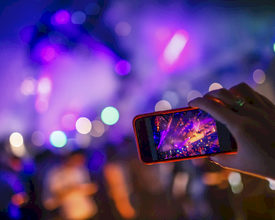With wifi tracking, you can map the behaviour of the attendees on your event. Is this a violation of their privacy? Not if you do it right.
With wifi tracking, you can track the wifi signal of the portable devices of your attendees. In retail, this practice has been used for some time in order to visualise the shopping behaviour of customers. Wifi tracking can also provide useful information for your event.
Measurement is the key to knowledge
The data which you collect using wifi tracking will give you information about the amounts and the behaviour of the attendees on your festival, congress or trade show. Which path do they take? At what stages do they halt longest? What stands do they enter first? How often do they visit catering stalls? Which info sessions do they attend, and do they stay until the end? With this information you can map the flows of visitors on your event and collect a valuable hoard of information about your attendees' behaviour.
Privacy
However, you should always anonimise this data. Because tracking people using the wifi signal of their portable devices is seen as a violation of their privacy.
In most countries, privacy legislation obligates you to at least inform your attendees if you are using wifi tracking. Organisers can only process personal data if they have a so-called legal basis to do this, for example permission from the people themselves to do this. Some countries state that you should not only inform your attendees, but that you should also offer an opt-out option for wifi tracking. You should therefore always check the local legislation!
As long as the software you use doesn't link the device to an individual, but just passes on the unprocessed data for statistical purposes, there's not really a problem. In order to avoid misunderstandings, it is best to inform your attendees that you're using wifi tracking. They can always choose to turn off their Wi-Fi.








